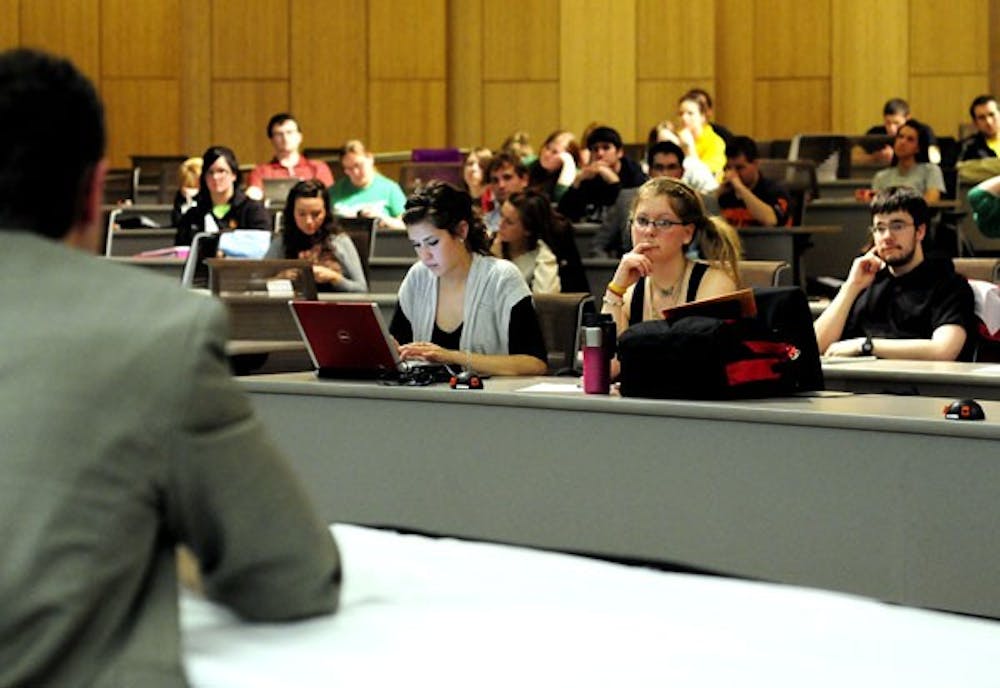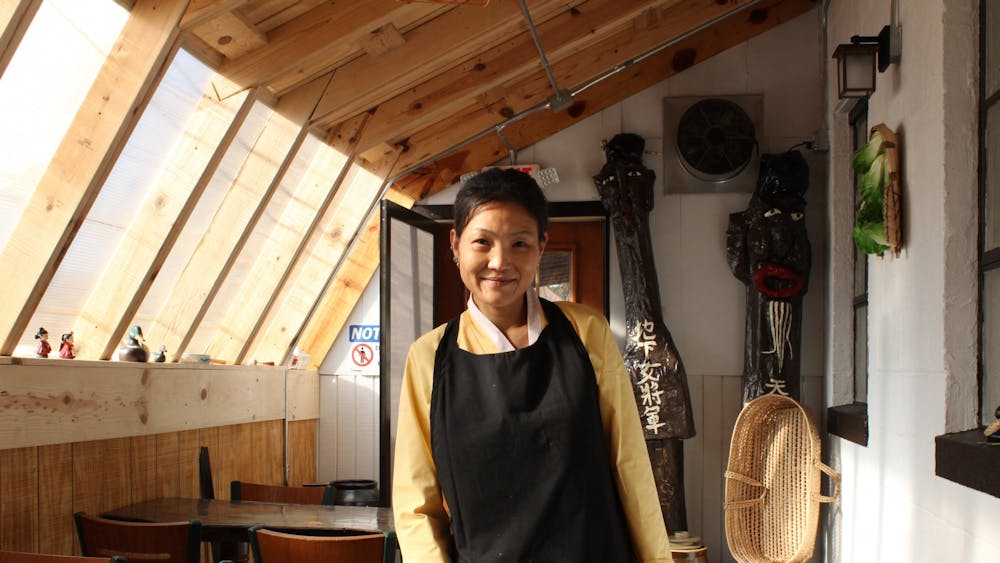Some professors worry that online courses could lead to decentralization of students and faculty

The future of class work may not reside in the classroom.
Dave Whale, associate professor of educational leadership, has two daughters that attend CMU. To them, online courses are no big deal.
“Online learning is a natural extension of everything you’ve grown up with,” he said.
Whale said taking courses online versus taking them in class is a noticeably different experience.
Four Central Michigan University faculty members spoke and answered questions about online learning Monday night in the Education and Health Services Building’s French Auditorium.
About 100 people attended the forum, hosted by the Student Government Association.
Merodie Hancock, vice president and executive director of professional education, said students cannot hide in online classes.
“There is no back row,” she said.
Hancock said it makes courses that grade for participation much less subjective, as the sum of the student’s contributions and discussion can be easily collected and reviewed.
However, the new technology does cause some difficulty for professors who are unfamiliar with it, she said.
“Our faculty will be teaching in a manner in which they did not learn,” Hancock said.
Whale said, over time, the gap will narrow.
“CMU does have the commitment to doing this the right way that few other public universities do,” he said.
Helpful for harmful?
Jeff Angera, associate professor of human environmental studies, said in his human sexuality course, online students were more open and engaged in discussion.
Some of them even requested he leave the class discussion boards open after the lecture was finished.
Mary Senter, professor of sociology, anthropology and social work, said the real challenge is figuring out which courses are adaptable to an online format.
Sentor said she has some skepticism for entirely online courses, particularly for traditional college students. She said a greater focus on online classes could lead to decentralization of students and faculty, which would harm the prevalence of higher education in research.
She said the reason the US has the best research base in the world is due in part to faculty and students all gathering in one place together with research labs and equipment.
“We’re going to lose that edge,” Senter said.




